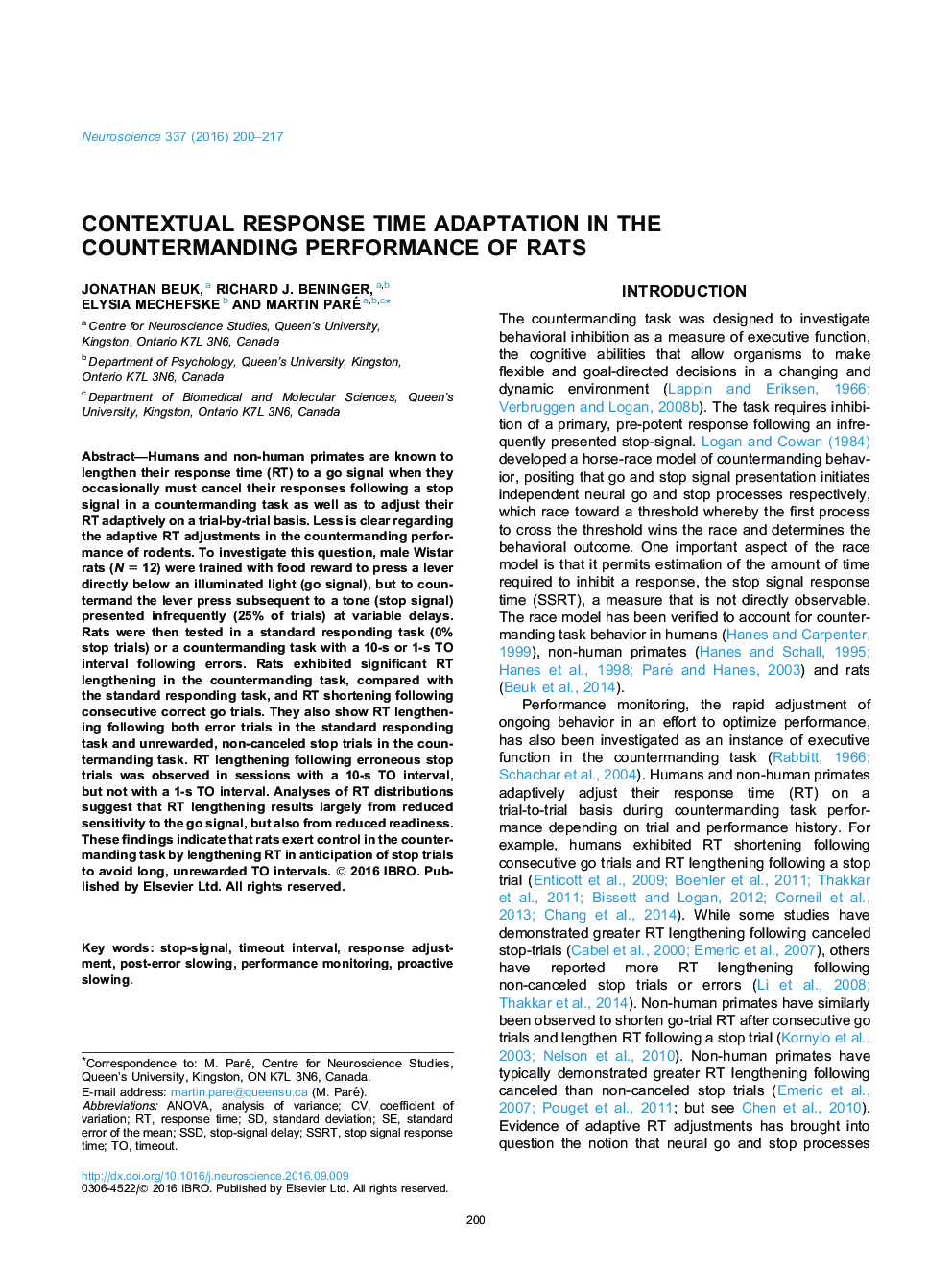| کد مقاله | کد نشریه | سال انتشار | مقاله انگلیسی | نسخه تمام متن |
|---|---|---|---|---|
| 6270716 | 1614739 | 2016 | 18 صفحه PDF | دانلود رایگان |
- Rat response time was significantly longer in sessions including stop trials.
- Responses were significantly longer following errors in countermanding and go-only sessions with a 10-s timeout interval.
- There was no significant response time adjustment in countermanding sessions with a 1-s timeout interval.
- Together, rats exerted behavioral control by lengthening responses to avoid long, unrewarded timeout intervals.
Humans and non-human primates are known to lengthen their response time (RT) to a go signal when they occasionally must cancel their responses following a stop signal in a countermanding task as well as to adjust their RT adaptively on a trial-by-trial basis. Less is clear regarding the adaptive RT adjustments in the countermanding performance of rodents. To investigate this question, male Wistar rats (NÂ =Â 12) were trained with food reward to press a lever directly below an illuminated light (go signal), but to countermand the lever press subsequent to a tone (stop signal) presented infrequently (25% of trials) at variable delays. Rats were then tested in a standard responding task (0% stop trials) or a countermanding task with a 10-s or 1-s TO interval following errors. Rats exhibited significant RT lengthening in the countermanding task, compared with the standard responding task, and RT shortening following consecutive correct go trials. They also show RT lengthening following both error trials in the standard responding task and unrewarded, non-canceled stop trials in the countermanding task. RT lengthening following erroneous stop trials was observed in sessions with a 10-s TO interval, but not with a 1-s TO interval. Analyses of RT distributions suggest that RT lengthening results largely from reduced sensitivity to the go signal, but also from reduced readiness. These findings indicate that rats exert control in the countermanding task by lengthening RT in anticipation of stop trials to avoid long, unrewarded TO intervals.
Journal: Neuroscience - Volume 337, 19 November 2016, Pages 200-217
